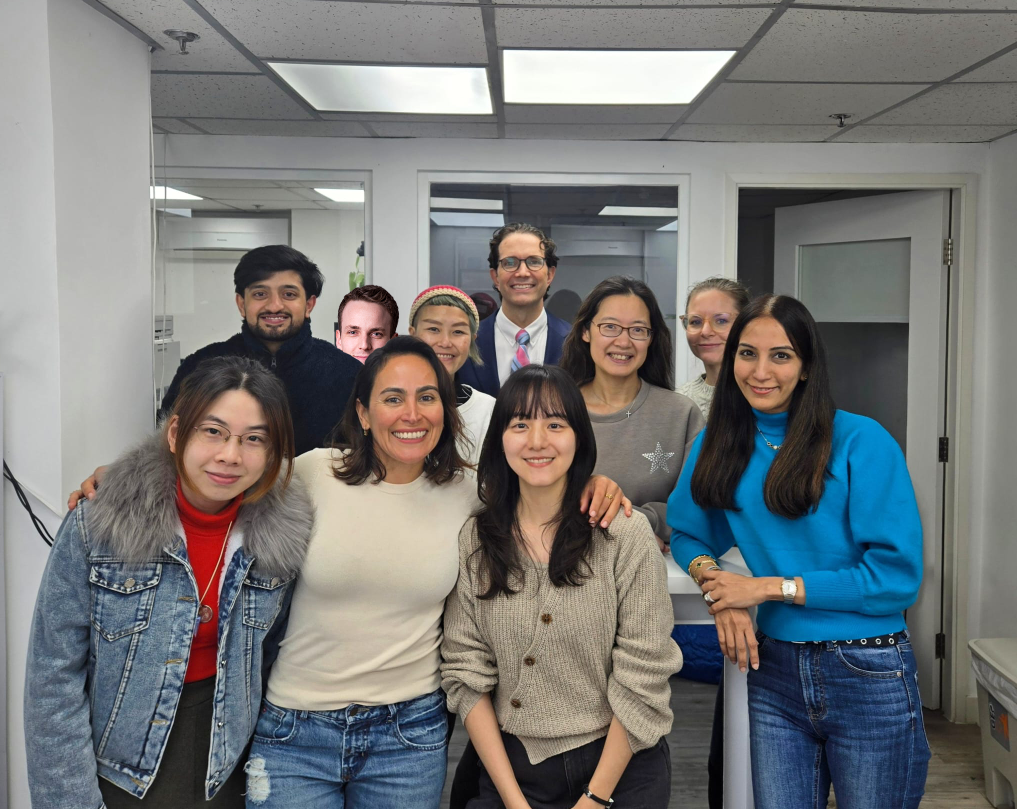About us
What is Foundation for Shared Impact?
Foundation for Shared Impact (FSI) is a registered charity (no. 91/16757) built on the philosophy of “shared impact”, which means that when different groups come together and collaborate by sharing knowledge, resources, and time, we can attain more significant social impact.

Vision
Our vision is for a future where everyone has access to the resources and opportunities they need to reach their full potential, drive collective social impact, and enable society to change for the betterment of all.
Mission
Our mission is to address society’s most challenging problems by connecting different sectors to facilitate broad collaboration and free sharing of resources, knowledge, and information to drive systems change, build resilient communities, and change the way we do business for good.
What is Shared Impact?
Shared Impact is a philosophy that has evolved over a decade of working alongside some of Asia’s most committed social impact organizations.
Many social impact organizations share a vision for a better tomorrow, but also share similar challenges that slow their growth and social impact.
They also often address problems independently and without effective communication and collaboration.
These observations led us to the belief that systemic problems require solutions with broad collaboration.
This helped us develop the concept of Shared Impact, where goals and operations are synchronized, resources are maximized, and overlap and waste are minimized by connecting people with information, resources, and knowledge.
Our Shared Impact Philosophy
Broad Collaboration
At FSI we believe that big problems require broad collaboration.
Social impact organizations often address problems independently and without effective communication and collaboration. They see fundraising and operations from a zero-sum mentality, where the success of a seeming competitor somehow diminishes their own success or impact. When social impact organizations see fundraising as a zero-sum game, it frustrates funders, who desire collaboration and better resource allocation. Moreover, with only isolated, disparate impact, large-scale problems are only addressed at a cursory or hyperlocal level, making it impossible for broad systems change.
Organizations utilizing the shared impact philosophy take time to consider how their programs fit into the broader impact space, factoring in what others are doing, and trying to avoid unnecessary duplication. They learn from others, meeting together often, and looking for synergies. They consider how their strengths and resources can bolster and support existing programs. And most importantly, they cheerlead and congratulate other organizations on their successes.
At FSI, we stand with any organization that shares our values, and will do whatever we can to support you in your mission.
Freely Share Knowledge and Resources
We also believe that for collaboration to work, organizations must freely share knowledge and resources with each other.
Even the largest social impact organizations are very small businesses by commercial standards, and this often leads to challenges in terms of allocating resources to cover operational needs.
Organizations utilizing the shared impact philosophy focus on the things they do well while relying on others to do what they do well. That involves sharing information, resources, and knowledge, so that goals and operations across sectors are synchronized, resources are maximized, and overlap and waste are minimized. Shared impact organizations are honest about successes and failures, allowing others to learn from their experiences.
FSI identifies common organizational gaps, and works within our community to fill those gaps. At FSI, we share our subject matter experts in communications, technology, education, and law with our portfolio of social impact organizations. And through our Impact Lab course and Community Connections Program, social impact organizations benefit from a broad network of interns and corporate experts to help them scale their impact. Additionally, FSI shares software, technical hardware, and office space among our portfolio.
Data-driven Impact Models
Advancements in technology and data analysis have provided unprecedented opportunities for social impact organizations to collaboratively rethink and reshape systems.
Unfortunately, the impact sector is notoriously low-tech, sometimes leading to inefficiency and diminished results. Few organizations have a robust impact measurement system in place, and most would benefit greatly from harnessing tech to streamline routine workflows and automate data collection.
Organizations utilizing the shared impact philosophy understand the importance of impact measurement and data analysis to identify what works and what does not work. They are able to aggregate data to see the big picture, and thus identify the root causes of problems, focus on stopping them on a systemic scale, analyzing trends, and isolating optimal actions.
At FSI, we train social impact organizations about efficient and cost-effective tech tools, and help them integrate them into their workflow. To enable organizations to gain a better understanding of the issues they try to tackle and their program effectiveness, we help them identify key impact measurements, and devise simple methods for collecting and sharing impact data. We also use scraping algorithms and public information requests to identify relevant datasets, and we work with researchers to ask questions and identify root causes of problems. We try to be as transparent with the data as we can ethically and legally be, educating the entire sector on the issues.
Seeking Systems Change
At FSI, we encourage everyone to explore radically innovative strategies that reimagine existing business models and drive systems change. When we integrate broad collaboration, the sharing of knowledge and resources, and data-driven impact models, we believe that systems change is achievable.
Achieving systems change means that the issues your organization set out to address cease to exist, or fundamentally altered for the better.
Organizations adopting the shared impact philosophy periodically ask fundamental questions, like: What is the problem we are trying to solve? If our current operational model is successful, will it alleviate or solve that problem? Without a clear answer to the first question, or an affirmative answer to the second, impact organizations should reflect on their core mission and strategy, theory of change, and potentially calibrate their programs to make them more in line with successful outcomes.
For some reason big ideas are often unrewarded in the social impact sector. In fact, in many cases regulation, government funding guidelines, and private funding paradigms make it impossible for funding to reach the most impactful projects.
At FSI, we take a structure-agnostic approach when deciding who we work with, supporting organizations looking to drive systems change. We focus on people with big ideas and organizations with scalable operational models. We offer in-depth assistance to our beneficiary companies in a variety of areas, believing that successful investments into the right solutions can lead to exponential impact. And we work with funders to identify the right organizations to bet on, helping them access the capital they need to reach as many beneficiaries as possible.
A Culture of Radical Candour
Driving systems change is a mission larger than any single social impact leader or organization. It is a collaborative effort to make the world a better place. At FSI, we believe that organizations that are transparent and honest about their actual impact, as well as their failures, can be immensely beneficial to serving the greater good.
Social impact organizations that integrate data-driven impact models have the information they need to know what is working and what isn’t. They key is to take the time to really assess the impact, and then share the lessons you learn (including from failures) so that other organizations can do better.
Promoting a culture of candour internally is just as important, as it encourages your staff to voice their concern and feedback, and enables leaders to build trust and ensure the organization as a whole is aligned on its mission.
Organizations that adopt the shared impact philosophy are not afraid of, or embarrassed by, failure. Affecting systems change rarely works perfectly during the first attempt. At FSI we encourage our partners to speak openly with each other, candidly explaining what has worked for them and what has not. We try to stay humble enough to recognize that we do not know everything, and driven enough to try again after we fail. By asking tough questions, of ourselves and others, and being willing to scrap programs or pivot our models, we stay at the forefront of innovation and social impact.
Our Model
Click on the circles to find out what each stakeholder group is able to achieve with the support of FSI!
achieve bigger impact through capacity-building and collaboration
mainstream effective philanthropy with the aid of transparent impact measurement
solve real-life problems through experiential learning program
share their expertise and knowledge through skills-based volunteering
support the diverse social impact organizations and entrepreneurs with the aid of transparent information
grow and sustain to enrich the diversity of HK’s entrepreneurial ecosystem
effectively channel private sector resources to impactful purposes
Our Impact Over the Years
Our People
FSI is fortunate to have a passionate and driven team who help the organization share and scale its impact. In a world of think tanks, this is the team powering our “do-tank”. Read more about who they are!

David Bishop
Co-Founder & Director

David Bishop
Co-Founder & Director

Jon Pedersen
Co-Founder & Director

Jon Pedersen
Co-Founder & Director
- Phone:94428096
- Email:jon@shared-impact.com

Sanjukta Mukherjee
Director

Sanjukta Mukherjee
Director

Oliver Spensley
Director

Oliver Spensley
Director

Andrea Qi
Director

Andrea Qi
Director

Vivek Kumar
Board Advisor

Vivek Kumar
Board Advisor

Vivian Seo
Executive Director

Vivian Seo
Executive Director

TC Li
Communications Manager

TC Li
Communications Manager

Leontine Chuang
Partnership Manager

Leontine Chuang
Partnership Manager

Claudia Anticona
Community Connections Manager

Claudia Anticona
Community Connections Manager

Lucia Loposova
Education Manager

Lucia Loposova
Education Manager

Adnan Riaz
Community Business Support Program Associate

Adnan Riaz
Community Business Support Program Associate

Dina Pesumal
Program Manager

Dina Pesumal
Program Manager

Mandy Yeung
Corporate Social Responsibility Associate

Mandy Yeung
Corporate Social Responsibility Associate

Marc Pangilinan
Virtual Assistant

Marc Pangilinan
Virtual Assistant

Paolo Garcia
Virtual Assistant

Paolo Garcia
Virtual Assistant

